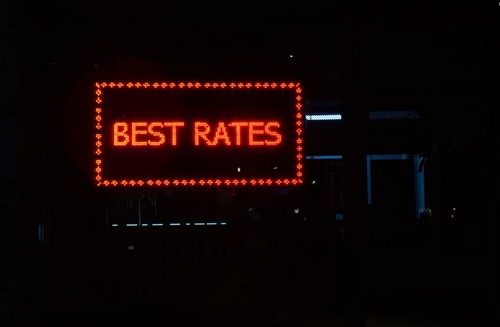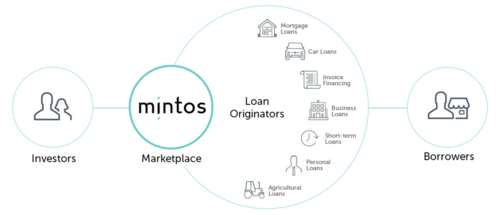P2PIncome | A Guide to Understanding the Loan Originator
Loan originators(LO) are financial institutions that acquire debt through selling loans to borrowers. You can think of them as professional money lenders. They make revenue on the interest rates they collect from borrowers. Loan originators also sell their pre-funded loans on marketplaces or exchanges. They sell the same loan, with the conditions it comes with and simply include a fee for themselves.
This is a highly profitable venture for many loan originators who are also part and parcel of the rise of peer-to-peer lending platforms. Many loan originators have created their own platforms and many platforms have become a neutral marketplace for many loan originators to come and sell their loans.

Perhaps you are wondering why loan originators are a part of the peer-to-peer lending model. It must be made clear that the peer-to-peer lending market is at a very nascent stage. Prior to the emergence of peer-to-peer finance, it was only the loan originators and banks who were legally selling debt for profit. Because of this history it became the responsibility of banks and loan originators, to ensure the new alternative financial technologies, abide by the proper and legal way to conduct a lending business model.
The Loan Originator Lending Model
In our current peer-to-peer landscape those who work with loan originators operate in an ecosystem that has four participants: the borrower, the platform, the loan originator and the lender. This model allows for the loan originator to make the majority of profit, and the lender to be more profitable than the bank and be financially insured by the loan originator. The borrower receives more or less the same interest rate received anywhere else, and the platform takes a small cut off each deal.
A great example of such a model is illustrated by Mintos' marketplace which you can read more about in our Mintos review.

This business model, in essence, allows the facilitation and expansion of peer-to-peer lending to go uninterrupted. The multiple layers of communication and security enable investors to trust in the system, loan originators to do their job with out interference, and for platforms to manage their ecosystems.
Now that we have discussed what they are, let's discuss what they do.
A Loan Originator Sells Debt
A loan originator has two motives, the first one is to sell loans to borrowers. The second is to guide the borrower through the legal application. It's important to note that the loan originator is first a salesman before being a loan approval company.
Loan originators are a new breed of financial institutions that sell loans to retail investors. Prior to peer-to-peer lending, a similar profession was known as Mortgage Loan Originators(MLOS). MLO's are still very much around and are just like loan originators, however, the type of loans they sell are solely mortgage loans. MLO's evaluate, authorize and approve real estate or commercial loans.
While many of these people exist in peer-to-peer lending, the majority of loan originators are issuing consumer loans. LO's can issue loans for just about anything but the majority of circulating capital in peer-to-peer finance comes from consumer loans.
What Loan Originators Bring to the Table
Loan originators have a selling advantage to investors because they offer two features that other lenders might not. The first one is "skin in the game", every loan originator has a significant share of their portfolio in any loan that they would try to entice you to fund. Meaning, if you win, they win, and if they win, you win. This mutual alignment makes the loan originator more trustworthy because you share interests.
The second great feature that is provided by the addition of a loan originator is Buyback Guarantees. Buyback guarantees have been the subject of controversy. The buyback guarantees promises that if a borrower fails to pay back his loan after 14 to 30 days, depending on the contract, then the loan originator purchases the loan back from the investor in full, including interest accrued.
Mintos CEO, Martin Sulte, famously said, "the buy back guarantee is only as good as the company that guarantees it". Which really means, the buyback guarantees is not something that an investor can rely on. Other platforms such as PeerBerry have multiple layers of buyback guarantees in order to mitigate the potential damage a defaulted loan originator would cause. To avoid the mistakes Mintos made in the past, In 2019, Mintos was fighting a case against EuroCent. To cut a long story short, Eurocent was protected by the Polish national court and investors on Mintos lost millions of euros. You can read more about it in our guide to Mintos defaulted loans.
For these reasons, it is of utmost importance to know where your capital is going. All loan originators should be held to the same scrutiny and due diligence that you would provide for anything else you are investing into.
Verdict
Loan originators are a great resource to have in the current industry. As technologies grow, then perhaps the market will find less of a need for them, as it will eventually find less of a need for banks. As things stand, loan originators and banks bring a form of stability. And to have some form of drastic disruption could only cause damage to the stability of an economy. The change to alternative finance must be a slow and natural one.
Peer-to-peer is not the only financial development that is arising in our current landscape. Cryptocurrencies, Mastercard, Visa, TransferWise and many other financial mechanisms are developing new technologies that could and will alter the way we understand finance for generations to come. What does that mean for loan originators? For now, they are the experts we depend on for a functioning peer-to-peer lending ecosystem.
